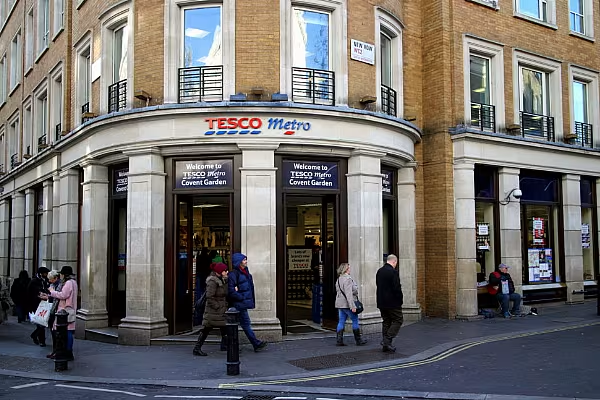Tesco has the upper hand in its battle with Unilever over Ben & Jerry's ice cream and Marmite spread.
The British supermarket is in a game of chicken with the consumer giant over the price of branded goods. Tesco is resisting Unilever's attempt to lift prices to cover additional costs generated by sterling's devaluation.
Someone has to pay for the fact that a weaker pound makes many of Unilever's products more costly to British buyers. The burden could in theory be shared between Unilever and its suppliers, distributors like Tesco, and the end consumer. But the grocer feels it and its customers are being asked to shoulder too much of the pain. So it's staging a buyer's strike. Some Unilever products have been withdrawn from its online store, although existing stockpiles are keeping them on the shelves.
In this showdown between Tesco CEO Dave Lewis and his former boss at Unilever, Paul Polman, the stakes look finely balanced at first glance. The U.K. isn’t a strategic growth market for Polman. His strategy has been to diversify into emerging markets -- say by introducing Lux soap into the Philippines. Asia and Africa accounted for 42 percent of sales last year. The U.K. is about 5 percent of turnover. Unilever reported underlying sales up 4.2 percent in the first nine months of 2016 on Thursday, including a 7.2 percent gain in emerging markets.
As a large-store format grocer, one of Tesco's competitive advantages is providing a wide range for customers doing a one-stop shop. So stocking brands such as Unilever's matters.
But Unilever still has most to lose if Tesco permanently stopped selling its stuff. Tesco would risk seeing some customers defect to rivals to do their weekly shop. But it's hard to see why other supermarket chains will be better able to swallow higher prices for Persil and Domestos, given their relative size. Tesco leads with 28 percent of the grocery market in the U.K., followed by Sainsbury and Asda with 16 percent each, according to Kantar Worldpanel data.
Shoppers would have to find alternative items, and they could. In some cases, U.K. domestic producers could fill the gap. But while ice cream can be made from British milk and sugar, the ingredients of Tresemme shampoo don't grow in Norfolk. It may simply be that post-Brexit shopping habits have to adjust.
Lewis has a negotiating advantage too: he worked at Unilever so knows what buttons to press to make Polman budge.
Tesco, which has a reputation for playing hardball with suppliers, would also finally generate some good PR by sticking up for consumers against a multinational. U.K. shoppers are going to be feeling the pinch even more soon, as the weak pound pushes up energy bills. They'll warm to whoever they see as their greatest champion.
This column does not necessarily reflect the opinion of Bloomberg LP and its owners.
News by Bloomberg, edited by ESM. To subscribe to ESM: The European Supermarket Magazine, click here.













